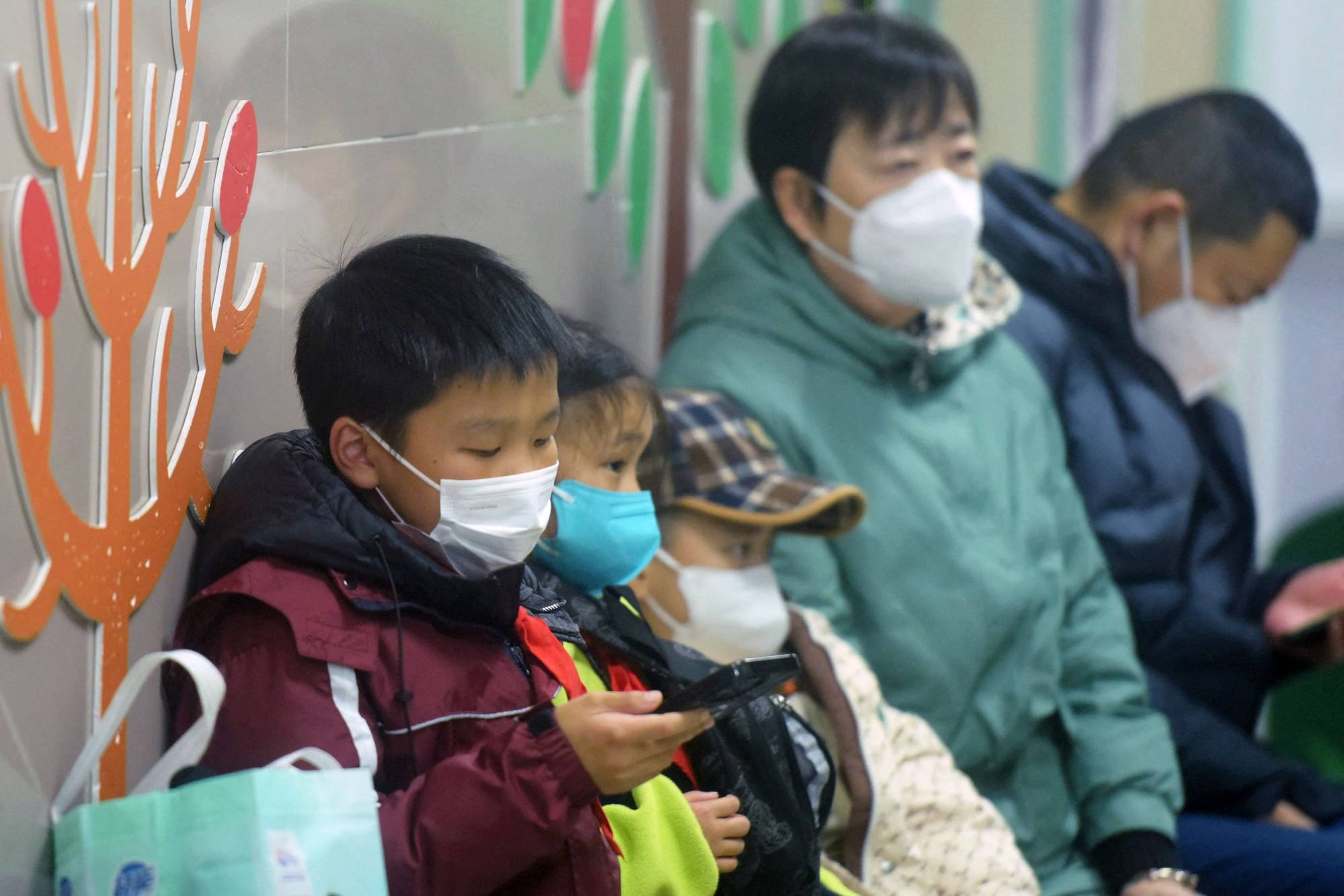Chinese hospitals are treating more cases of flu than human metapneumovirus (HMPV) this winter, according to doctors at various hospitals around the country, downplaying foreign media reports that there has been a surge in cases.
Media outlets around the world have carried reports saying that the rise in HMPV cases has “overwhelmed” hospitals, citing video footage of crowded wards taken from social media.
The flu-like disease can cause respiratory illness in people of all ages, especially young children, older adults and those with weakened immune systems.
Do you have questions about the biggest topics and trends from around the world? Get the answers with SCMP Knowledge, our new platform of curated content with explainers, FAQs, analyses and infographics brought to you by our award-winning team.
The most recent figures from China’s Centres for Disease Control and Prevention have recorded a small increase in cases, but many more cases of influenza, a pattern that doctors around the country have also reported.
At the Children’s Hospital affiliated to Capital Institute of Pediatrics in Beijing, one of China’s most prominent public children’s hospitals, many children were receiving infusion treatment in the emergency room on Wednesday noon, but a doctor said most were infected with the flu virus and he had not heard of any cases of HMPV.
A respiratory physician named Wang at the China-Japan Friendship Hospital, another major hospital in Beijing, also said that the vast majority of inpatients in his unit – perhaps more than 90 per cent – had influenza infections.
This is at odds with some recent headlines in international media that there has been a surge in HMPV cases in China.
Kan Biao, an official with China’s CDC, said at a press conference on 27 December that cases of HMPV among people under the age of 14 were showing an upward trend, especially in northern provinces.
China is likely to be affected by various respiratory infections in winter and spring, but the total number of cases this year would be lower than last year, he said.
According to the latest data released by the CDC, during the week of 23-29 December the HMPV positive rate ranked among the top three in both outpatient and inpatient cases of respiratory pathogens, although its prevalence was much lower than influenza.
Compared with the previous week, outpatient influenza infections increased by 6.2 per cent, while HMPV increased by 0.1 per cent; among inpatients, influenza cases increased by 5.4 per cent, while HMPV increased by 1 per cent.
The World Health Organization said on Tuesday: “Recently, there has been interest in HMPV cases in China including suggestions of hospitals being overwhelmed.”
But it said China’s reported levels of acute respiratory infections, including HMPV, “are within the expected range for the winter season, with no unusual outbreak patterns reported”.
It added: “Chinese authorities report that the health care system is not overwhelmed and there have been no emergency declarations or responses triggered.”
Wang said his experience suggested there were slightly more HMPV infections than last year, but nowhere near the prevalence of the influenza virus, and there was nothing to justify calling it an “outbreak”.
Among the more than 100 beds in his ward, there were a few HMPV patients two weeks ago, but no new cases have been detected recently, and now all the hospitalised patients are influenza cases.
In the southern Chinese province of Guangdong, Cai Weiping, director of the infectious diseases department at the Guangzhou Eighth People’s Hospital affiliated to Guangzhou Medical University, said his department had not seen any increase in HMPV cases.
Elsewhere, at the Nanfang Hospital of Southern Medical University, infectious disease doctor Peng Jie said the virus was relatively rare at his hospital.
The virus is not new. It was first isolated in 2001 – although research shows it has been circulating in humans for at least 60 years.

Wang said it was only in recent years, with the wider use of molecular diagnostic tests, that the virus has gained attention. “In the past, doctors could not know the exact pathogens of pneumonia, but this has changed with more advanced tests,” he said.
Peng from Guangzhou called on the media not to overemphasize the HMPV virus, and said there was no need for the public to panic.
“The virus is always present in the environment, and in winter, when human immunity is weaker, it is easy for the elderly and children to catch it. But unlike other respiratory viruses such as Covid, HMPV does not spread easily in the population,” he said.
Cases of HMPV have been rising in other countries too, including the United States, which has seen a low-level increase.
The US CDC said that of the estimated 13,800 people tested for respiratory illness during the week of 28 December, only 1.94 per cent tested positive for HMPV. By comparison, 18.71 per cent of weekly tests were positive for influenza and 7.10 per cent were positive for Covid.
More from South China Morning Post:
- Indonesia’s Bali to curb HMPV cases, steps up checks on visitors from China and Malaysia
- First US bird flu death announced in Louisiana
- Hong Kong’s winter flu season expected to peak mid-January, expert says
For the latest news from the South China Morning Post download our mobile app. Copyright 2025.





